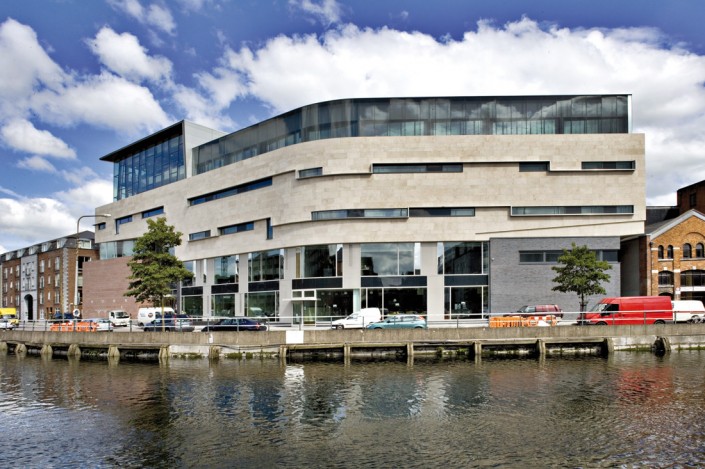LIR Seminar: “Artificial Intelligence and Libraries” December 6th, Cork
The seminar theme for 2019 is: “Artificial Intelligence / Automation: Short term and Long term thinking in libraries”.
Automation, Artificial Intelligence and Machine Learning are trends that are making a profound impact on our society. This year’s seminar aims to explore how librarianship might be affected now and where things might go in the future.
We wish to invite anyone who wants to speak at this seminar to submit an abstract to LIRCTTE@LISTSERV.HEANET.IE. Proposals for presentations should be limited to 200 words. Your proposals could cover the following areas, for example:
- Library Strategy
- Technical Developments
- Cultural Change
The deadline for abstract submissions is the 25th of this month, October.
This year’s LIR Annual Seminar will take place in Cork City, in the CIT School of Music. The venue is the Curtis Auditorium. There will also be refreshments and a light lunch provided.
Conference Fee
The seminar is free to all paid-up LIR members.
For attendees from non-LIR member organisations, the attendance fee is €100.
Schedule
| 10:30 – 11:00 | Registration / coffee/ Ice-breaker with Mentimeter “What do you think of AI?” |
| 11:00 – 11:10 | Welcome address / housekeeping / introduction of twitter competition |
| 11:10 – 12:40 | Dr Andrew Cox: The intelligent library: Thought leaders’ views on the likely impact of Artificial Intelligence on academic libraries |
| Adrian Vaughan & Michael Costello: Deployment of an AI-powered Virtual Librarian in CIT Library | |
| Michael Upshall: What role for information professionals in the age of AI? | |
| 12:40 – 13:10 | Panel Q&A |
| 13:10 – 14:00 | Lunch |
| 14:00 – 15:30 | Dr Bernard Butler: AI and Machine Learning – their impact on research and knowledge |
| Dr Tony Russell-Rose: Searching for Meaning in Text: Natural Language Processing | |
|
Brenda O’Neill: The Mike Cooley Story: A Human-Centered Approach to the Curation of a Special Collection.
|
|
| 15:30 – 16:00 | Panel Q&A |
Speakers
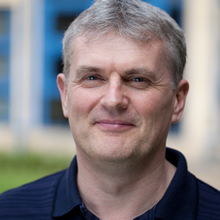
Dr Andrew Cox
Information School, University of Sheffield
The intelligent library
The presentation explores the meaning of artificial intelligence for libraries and within the wider HE context. Some applications are already familiar, some remain futuristic. It considers the different roles that libraries might play in applying AI and the knowledge, skills and attitudes that library staff would need to develop.

Dr Tony Russell-Rose
Goldsmiths, Univ. of London; Director, UXLabs
Searching for Meaning in Text: Natural Language Processing
Tony’s talk will be a lively guide to the how and why of natural language processing (NLP). The primary objective of NLP is to disambiguate language and search for meaning in
NLP faces monumentally complex obstacles confronted with linguistic ambiguity, but Tony will show how AI can help cut through these challenges.

Michael Upshall
Head of Business Development, UNSILO
What role for information professionals in the age of AI?
Recent advances in AI and machine learning have had a transformation effect on the creation and discovery of scholarly content. Traditional approaches, such as building large-scale classification systems, are today being evaluated alongside more automated tools that can identify core concepts and entities from journal articles and book chapters. In this presentation, Michael Upshall shows some examples of how these tools are being used in the scholarly workflow, from finding peer reviewers, to checking article content for appropriacy and relevance, to identifying related content in a repository. The presentation includes some suggestions for an enhanced role for the information professional in this new environment.
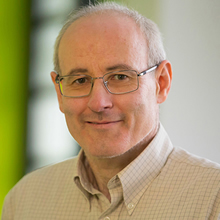
Dr Bernard Butler
Research Fellow, TSSG, Waterford
AI and Machine Learning – their impact on research and knowledge
AI and Machine Learning have become the source of many articles and discussions. For some, they offer the potential to solve the significant problems of our age: climate change, antibiotic resistance and human augmentation. Others take a more dystopian view, citing concerns such as human displacement and biased decisions. This talk looks behind the hype, explains where AI and Machine Learning came from and where they are going. It also outlines some ways in which the world of research, and of knowledge more generally, is undergoing a fundamental change in response to advances in AI and Machine Learning.
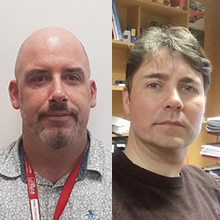
Adrian Vaughan, Michael Costello
CIT Library Assistant, CIT Deputy Librarian
Deployment of an AI powered Virtual Librarian in CIT Library
CIT library has implemented Watson Assistant; IBM’s AI product “that lets you build, train, and deploy conversational interactions into any application, device, or channel”. In the guise of Berkeley the virtual librarian, this has enabled CIT library to provide immediate responses to the most frequently asked library queries, regardless of time and user location. Adrian Vaughan (CIT Library Assistant) & Michael Costello (CIT Deputy Librarian) will explain why and how Berkeley was created, how it continues to learn, explore findings to date and discuss future developments for Berkeley within CIT library.
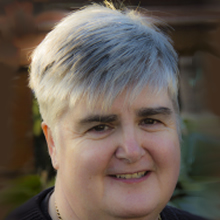
Brenda O'Neill
Insyte-Cooley Research Lab, Department of Computing and Mathematics, WIT
The Mike Cooley Story: A Human-Centered Approach to the Curation of a Special Collection.
Brenda O’Neill presents a human-centred AI systems architecture that incorporates OWL/RDF as a basis for inference. This technology is centred around the librarian as curator. It valorises the librarians’ tacit knowledge and is designed to augment, rather than replace, the work of the librarian through a human-machine symbiosis.
This approach is consonant with the philosophy of Mike Cooley, an Irish engineer, and union leader, best known for his work on the social effects of technology and on human-centred systems. Cooley’s books, papers, correspondence, and other ephemera were donated to the Waterford Institute of Technology Library by his family, in 2017.
An interdisciplinary team consisting of librarians, technologists and students are working together on the digitisation of this collection as part of a newly formed research group, the Insyte-Cooley Research Lab (I-CRL).
CIT Cork School of Music
Expressions of Interest:
Expressions of interest and proposals for short presentations (20 minutes) should be forwarded to LIRCTTE@LISTSERV.HEANET.IE. Proposals for presentations should be limited to 200 words.
About the Venue, CIT Cork School of Music
The CIT Cork School of Music is located in the centre of Cork City, Ireland. The college was founded in 1878 and became a school of Cork Institute of Technology in 1993. The school currently operates from a five-floor purpose-built conservatory which was built on the site of the former premises. It opened in 2007 and was designed by Murray O’Laoire and Buro Happold.
